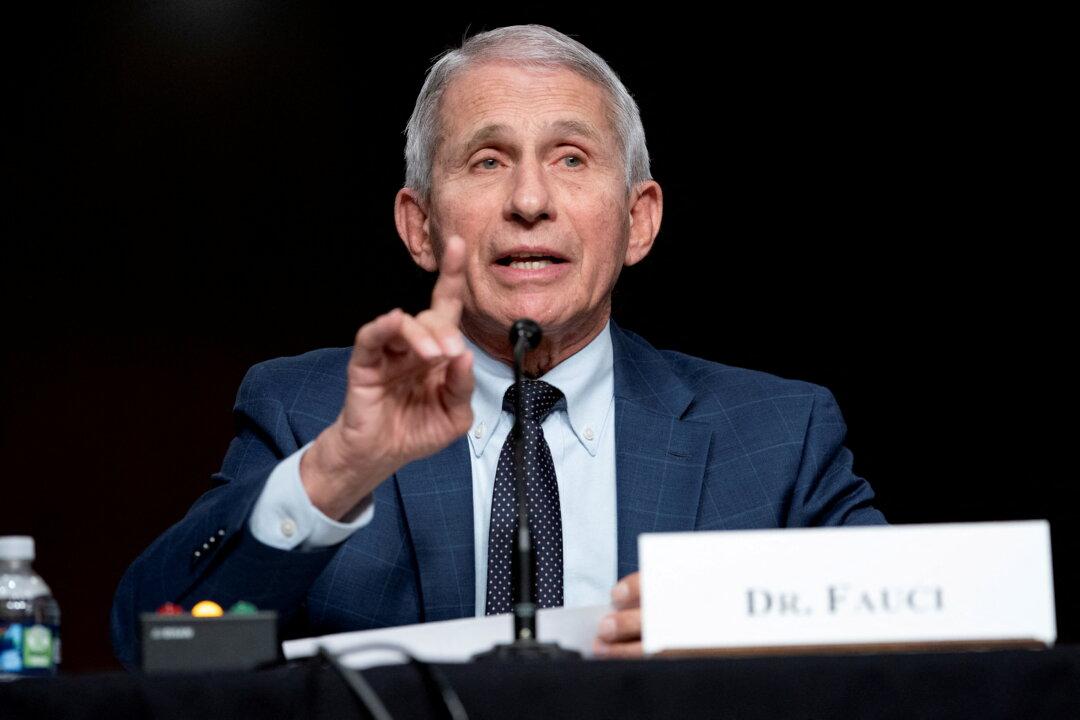White House chief medical adviser Dr. Anthony Fauci said it’s now up to Americans to determine their own COVID-19 risk, after months of promoting government- and corporate-backed restrictions.
“This is not going to be eradicated, and it’s not going to be eliminated,” Fauci told ABC’s “This Week” about the CCP virus, which causes COVID-19. “And what’s going to happen is that we’re going to see that each individual is going to have to make their calculation of the amount of risk that they want to take.”





